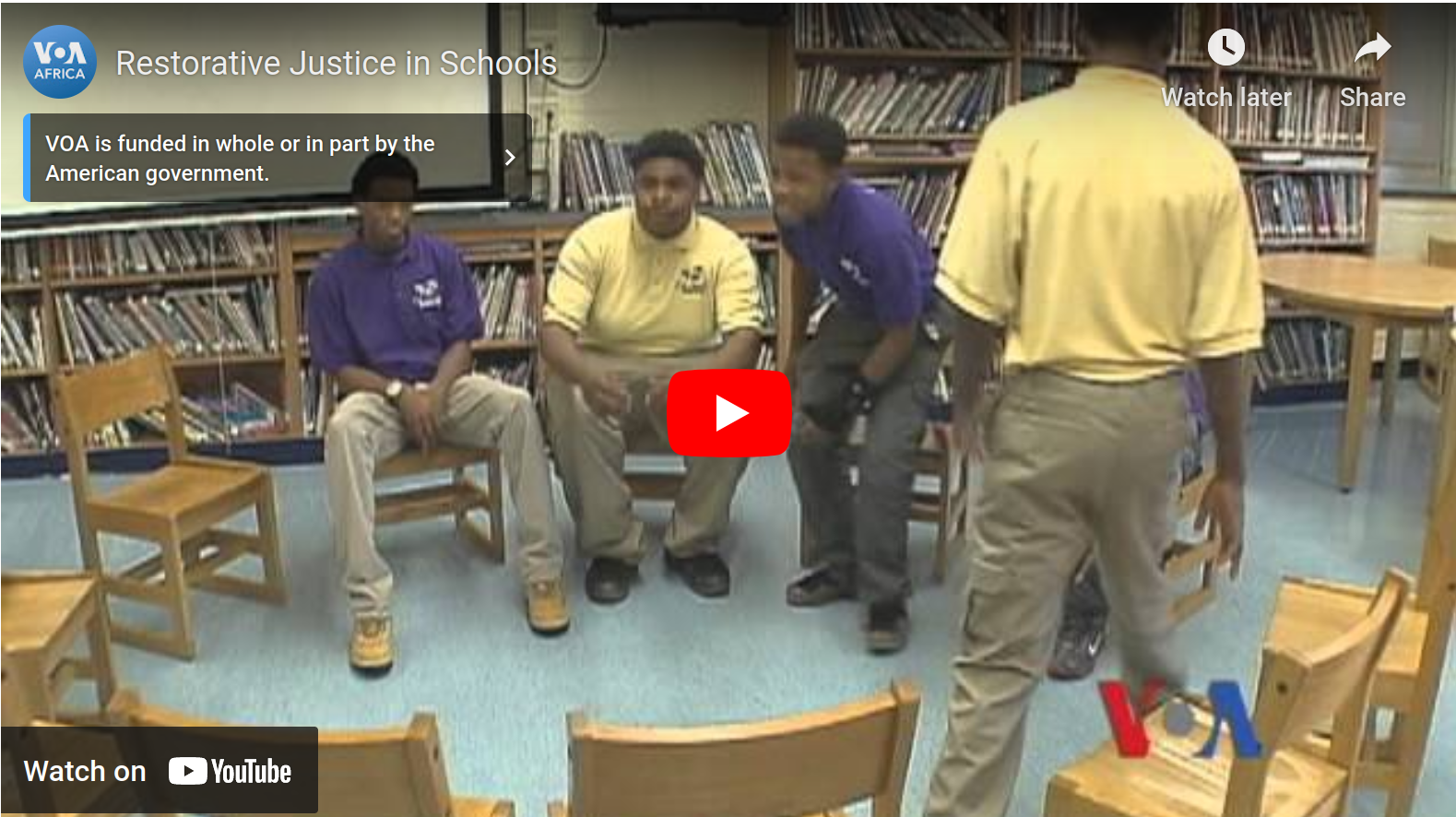News & Announcements
- Details
- Written by Joshua Wachtel
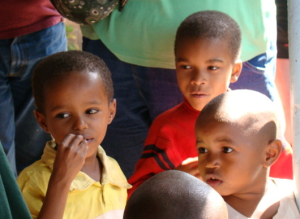 During the school year, Kristen Swanson teaches middle school at Pennridge School District in eastern Pennsylvania, USA. But this summer she will be leading a group to the nation of Rwanda in Africa to provide a learning experience for a new generation of children’s writers.
During the school year, Kristen Swanson teaches middle school at Pennridge School District in eastern Pennsylvania, USA. But this summer she will be leading a group to the nation of Rwanda in Africa to provide a learning experience for a new generation of children’s writers.
Rwanda, which is still recovering from the genocide committed there in the 1990s, will welcome Kristen and a team of experienced writers to Kigali, the nation’s capital, to deliver a writing workshop. The team's goal is to “build a culture of books starting with the very youngest readers” and “to spread stories of courage, forgiveness and reconciliation to the next generation” (as quoted on the project’s successful “Kickstarter” page).
- Details
- Written by Joshua Wachtel
 Photo by Jon Feinstein at Flickr Creative CommonsRestorative justice, while able to benefit the needs of young adult offenders and those they victimize, is underutilized. That's according to a report released today by the Restorative Justice Council (RJC) in the UK. "Restorative Justice: Factoring in maturity and facilitating desistance" by Ian Marder does three things:
Photo by Jon Feinstein at Flickr Creative CommonsRestorative justice, while able to benefit the needs of young adult offenders and those they victimize, is underutilized. That's according to a report released today by the Restorative Justice Council (RJC) in the UK. "Restorative Justice: Factoring in maturity and facilitating desistance" by Ian Marder does three things:
• Explains the concept of maturity and how it develops in young adults. It argues that maturity is a process, rather than an event, outlining the implications of this for restorative practitioners working with offenders and victims from this age group;
• Analyses the links between participation in a restorative process and desistance from crime, applying the existing theoretical and empirical evidence on restorative justice and desistance to young adult offenders;
• Discusses the use of restorative justice in other jurisdictions, before outlining the current provision of restorative justice for young adults in England and Wales and the variety of intervention points at which restorative practices can be utilised. (p. 7) [emphases added]
- Details
- Written by Joshua Wachtel
I've featured IIRP's work with City Springs Public Charter School (K-8) in Baltimore, Maryland, a number of times in the past. Now, in this 6-minute segment from Voice of America's African TV2, reporter Laurel Bowman presents what she found during her visit to the school earlier this spring. Both proactive and responsive practices are highlighted here, including circles and a restorative conference with children young and old.
- Details
- Written by Joshua Wachtel
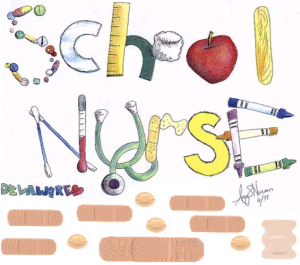 The following are excerpts from a recent article published in School Nurse News by Laura Mirsky, IIRP Assistant Director for Communications.
The following are excerpts from a recent article published in School Nurse News by Laura Mirsky, IIRP Assistant Director for Communications.
Kathleen Hawkins, a school nurse at Liberty [High School in Bethlehem, Pennsylvania] for 15 years (25 years overall), was trained in restorative practices along with all of Liberty’s staff. Hawkins says that restorative practices has allowed her to improve her nursing practice. She has found the restorative approach to be fundamentally compatible with the nursing process, as set forth in the acronym “DAPE” — Data, Assessment, Plan and Evaluation. Says Hawkins, “Like with restorative practices, you sit down and collect information about a patient — how they feel — then you assess the information, plan how you’re going to handle it and evaluate what you did. That’s the way nurses think.”
The difference is that restorative practices is more intentional in terms of collecting emotional data, says Hawkins. ...
- Details
- Written by Joshua Wachtel
 This year Colorado has passed yet another law to advance the use of restorative justice across the state. With this law Colorado State House Representative Pete Lee and State Senator Linda Newell continue to build upon past legislative victories. They enjoy the support of many grassroots efforts as well as the work of a wide range of schools, police, probation and prison workers, and community groups across the state.
This year Colorado has passed yet another law to advance the use of restorative justice across the state. With this law Colorado State House Representative Pete Lee and State Senator Linda Newell continue to build upon past legislative victories. They enjoy the support of many grassroots efforts as well as the work of a wide range of schools, police, probation and prison workers, and community groups across the state.
Restorative Justice Colorado, which was established by state legislative action back in 2008 to coordinate restorative justice efforts throughout the state, explains the new law on its blog:
This new law will initiate an RJ fund via a $10 surcharge on offender fees. These dollars will help seed new pilot projects and develop research and evidence on the value of restorative justice. The money will also support a position for a state RJ Coordinator that supports the State RJ Council and RJ programs around the state.
Perhaps most importantly the new law will provide the opportunity to almost all juveniles referred to the justice system.
- Details
- Written by Joshua Wachtel
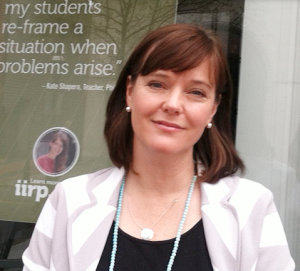 As a recipient of the Anika Foundation Scholarship, Sam Kourakis came to North America for five weeks to study restorative practices with the IIRP and a number of schools implementing restorative practices on a whole-school basis. Sam is a counselor at SCEGS (Sydney Church of England Coeducational Grammar School) Redlands, a private school in Sydney, Australia. She's been working with restorative practices in Australia for 15 years. At SCEGS they've incorporated circles in classrooms at every level, also involving parents.
As a recipient of the Anika Foundation Scholarship, Sam Kourakis came to North America for five weeks to study restorative practices with the IIRP and a number of schools implementing restorative practices on a whole-school basis. Sam is a counselor at SCEGS (Sydney Church of England Coeducational Grammar School) Redlands, a private school in Sydney, Australia. She's been working with restorative practices in Australia for 15 years. At SCEGS they've incorporated circles in classrooms at every level, also involving parents.
Sam began her trip in April by attending IIRP's 4-Day Basic Restorative Practices event in Boston, Massachusetts. She wrote on her blog, "It has been an amazing experience in which I have met professionals from a range of different settings, including schools, social services, health services and the juvenile justice system. These are all environments in which restorative philosophies can be embedded to develop relationships and strengthen positive community."
- Details
- Written by Joshua Wachtel
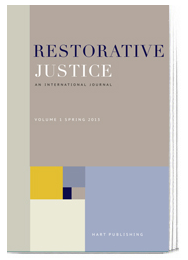 Restorative Justice: An International Journal, is currently seeking submissions.
Restorative Justice: An International Journal, is currently seeking submissions.
As stated on its web site, this peer-reviewed academic journal "seeks to facilitate the development and exchange of the best and most rigorously researched theoretical and practical scholarship within the domain of Restorative Justice (RJ).
"Restorative Justice publishes original, ground-breaking and innovative articles about RJ and contains a vibrant book review section in which new books relevant to RJ are reviewed by leading scholars in the field. As such the journal seeks to be the leading worldwide forum for those working in the field of RJ - academics, researchers, practitioners, policy-makers and interested citizens."
Detailed submission guidelines may be found here.
All Restorative Practices eForum subscribers are entitled to a discounted subscription to Restorative Justice.
- Details
- Written by Joshua Wachtel
Youth United for Change (YUC) describes itself as "a youth-led, democratic organization made up of youth of color and working class communities, with the 'people' and political power to hold school officials and government accountable to meeting the educational needs of Philadelphia public school students."
The following video, produced by YUC and the Advancement Project, features youth talking about how security measures in schools, such as police officers and metal detectors, actually make them feel less safe and often criminalize them for normal youthful behavior. They propose that their schools use restorative justice as an alternative, and the film shows them using restorative circles in a manner that suggests proactive community building.
Last year YUC was instrumental in winning changes to the Philadelphia schools student conduct code. They have also partnered with groups like the Dignity in Schools Campaign to work to end the so-called "school to prison pipeline."
This video, "Youth United for Change: Bring Safe Schools to Philadelphia," can also be seen here.
- Details
- Written by Joshua Wachtel
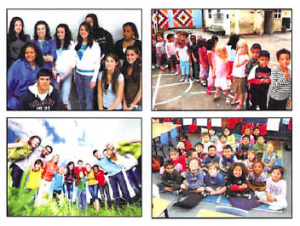 Last month John Bailie, IIRP’s Director of Continuing Education, was invited to speak at a conference in the state of Delaware, U.S.A., called “Partnering for Educational Success: Helping Youth in Care.” The overall focus was to explore how people could begin to better serve youth in their respective counties by working together across schools, the juvenile justice system and social work.
Last month John Bailie, IIRP’s Director of Continuing Education, was invited to speak at a conference in the state of Delaware, U.S.A., called “Partnering for Educational Success: Helping Youth in Care.” The overall focus was to explore how people could begin to better serve youth in their respective counties by working together across schools, the juvenile justice system and social work.
Sponsors of the conference included the Family Court of Delaware, the Delaware Department of Education, the Department of Children, Youth and Their Families, and the Office of the Child Advocate, with opening remarks by the chief judge, and the secretaries of education and the department of children. Attendees included representatives of the family court, schools and social services, as well as judges and legal advocates.
- Details
- Written by Joshua Wachtel
 Dreaming of a New Reality: How restorative practices reduce crime and violence, improve relationships and strengthen civil society by Ted Wachtel
Dreaming of a New Reality: How restorative practices reduce crime and violence, improve relationships and strengthen civil society by Ted Wachtel
The International Institute for Restorative Practices is excited to announce the publication of a new book by president and founder Ted Wachtel.
With compelling stories and statistics that demonstrate the promise of the exciting social movement known as restorative practices, Dreaming of a New Reality for the first time synthesizes the practices' many applications – in schools, justice systems, families and workplaces.
This inspirational narrative shows how thirty-five years of dreams and dedication can lead to proven results – healing victims, preventing bullying, curbing conflict and boosting satisfaction and productivity.
Dreaming of a New Reality is a manifesto for a movement: a powerful call to implement restorative practices worldwide – because it works.
"Restorative practices have positive implications for all social settings, from families to schools to workplaces. Drawing from both liberal and conservative values, restorative practices cultivate a society based on participation and mutual self-reliance, where as citizens we take greater responsibility for our own lives."
- Ted Wachtel, Dreaming of a New Reality
Order the book in print or electronic format here.

Restorative Works Year in Review 2024 (PDF)
All our donors are acknowledged annually in Restorative Works.

